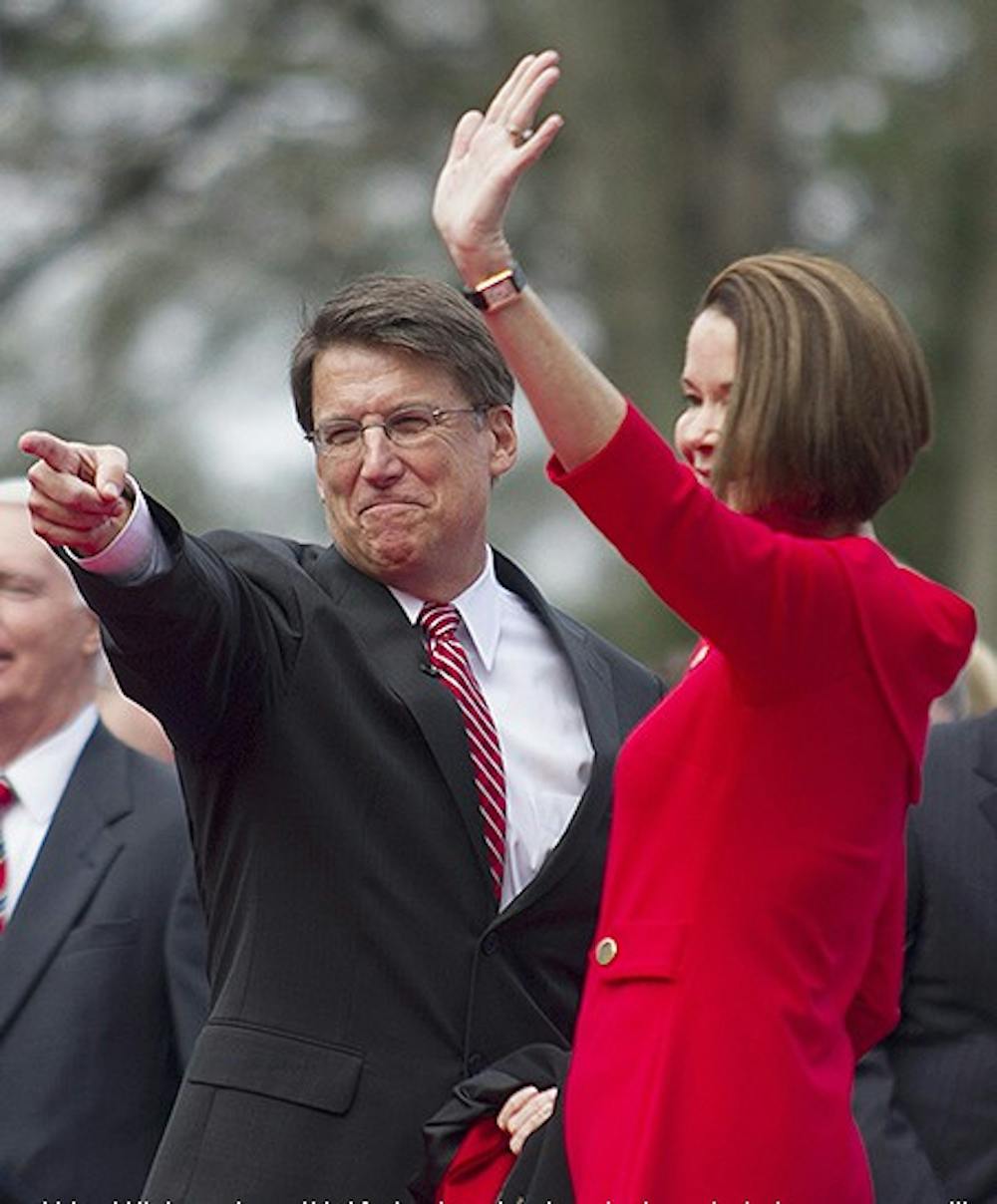Democrats in North Carolina found themselves in an unusual position at the start of 2013: in the state government’s political minority.
This year saw the emergence of a conservative political landscape not seen in the state for decades — Republicans’ dominance in the 2010 and 2012 elections gave them control of both chambers in the N.C. General Assembly and the governor’s mansion.
As recently as two decades ago, Democrats held majorities in all 22 legislative chambers in the Southern states, said John Dinan, a Wake Forest University political science professor, in an email.
Now, Dinan said, the party no longer controls any Southern state’s House or Senate, and only two of the states have Democratic governors.
Emboldened by a smaller possibility of vetoes standing in the way, the N.C. GOP took off running once the session began in January, enacting sweeping changes affecting public education, taxes, voting and abortion, and rejecting Medicaid expansion.
“The legislature is driving the bus, and (Gov. Pat) McCrory is along for the ride,” said Steven Greene, an N.C. State University political science professor.
Their actions sparked an outcry from many Democrats, who in April began gathering in Raleigh for weekly Moral Monday protests in which nearly 1,000 people were arrested for civil disobedience. The movement has continued throughout the fall.
“We hope that the people in the state legislature will listen to what we’re saying and think, ‘Well, gosh, if this many people are willing to take these risks, maybe we should rethink,’” said UNC history professor Jacquelyn Hall after her arrest in May.
Legislators called for even greater efficiency in higher education, as they cut $65 million from the UNC system’s state funding in 2013-14 and brought reductions since 2011 to nearly half a billion dollars — a drop that has hurt faculty retention at UNC-CH and forced smaller system schools to consider cutting degree programs.




